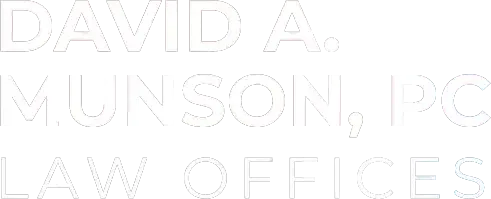Wills And Trusts Attorney In The Woodlands, Texas
Things Every Will and Trust Should Have
Anyone can draft a simple will in a couple of hours, but real estate planning requires careful consideration.
In most states, anyone over the age of 18 may create a will; it's a privilege, not a right. A few critical details must also exist for the testator, who is the creator of the will, before the it's considered valid. If it's invalid, the court distributes property as if no will exists through a process called intestate succession.
Elements of a valid will include:
- Being of legal age
- Having the capacity to understand what a will is and which property the testator owns
- The clear intention of transferring that property to beneficiaries
- Creating the will in writing (even handwriting)
- Properly signing without coercion
- Having the proper number of witnesses who sign in the testator‘s presence
- Properly executing the will according to the laws of the state
With the elements of a valid will satisfied, there are other considerations to help ease its transition through probate court.
Call David A. Munson, PC at 281-609-4408 to schedule a consultation with a lawyer today.
Name Your Personal Representative
Most wills include the name of a personal representative, which is a term that replaces Executor or Executrix. Confirm with the person you choose that he's willing to accept the job. There is a lot more to managing a deceased person‘s estate than reading a will and distributing gifts.
Plan for at least one backup and name her in the will. If your first choice is unable or unwilling to perform, the probate court could name someone that you wouldn‘t have.
Keep the names of your first and backup personal representatives on file with your attorney to avoid confusion in case the will isn't produced immediately upon your death.
Give Precise Directions For The Care of your children
Barring unusual circumstances, your spouse will become the sole caregiver of your children if you precede him in death. Wills may include provisions for the guardian of minor children in the event that neither parent survives or is capable.
As with naming a personal representative, listing a backup guardian avoids the court appointing one that goes against your wishes in case the first choice can't or won't take on the responsibility.
Keep precious items in the family by giving clear, precise instructions.
Offer Specific, Descriptive Information about Gifts
The distribution of special personal property usually has a place in wills, but be careful about how it's listed. Stating that Cousin Joe is to receive your vehicle isn't helpful to the court if you own two or three vehicles at the time of your death. Describe every gift to named beneficiaries as precisely as possible.
Be aware that stating all personal property is to be divided equally might not have the result that you wish. If the court can't determine the value of individual items, it might enforce a sale of goods and split the cash among beneficiaries. If the will creates a testamentary trust, this information is also included.
What to Leave Out
Payable-on-Death (POD) accounts, life insurance, stocks, bonds and anything where the item itself contains beneficiary information doesn't belong in the will, with the exception of a testamentary trust. Real Estate should only go in a will on the advice of your attorney, as there are numerous nuances to the pros and cons of doing so.
Planning for death usually means considering funeral arrangements, but those belong elsewhere. A will is produced after death, and sometimes they're challenging to locate.
Testamentary Trusts Provide For beneficiaries Long-Term
There are numerous types of revocable and irrevocable trusts, including Marital, Bypass, Testamentary, Irrevocable Life insurance, Charitable lead, Charitable remainder, and Grantor-retained annuity among others. A testamentary trust is one that‘s described in a will, although it can be a separate document, and the will itself sets the trust into action at the time of death.
The trust should name the property that‘s included, such as a special account of funds; the trustee, such as an attorney or bank; the beneficiary; and backup beneficiaries in case the primary is unable or unwilling to participate. Although rare, some people do opt out of being a beneficiary.
Some trusts provide for future generations by including instructions for payments well beyond the life of the primary beneficiary. This is worth considering if the property will not substantially devalue over time, such as accounts where the distribution comes only from earned interest and not from the principal.
One of three types of instructions should exist in a testamentary trust: Discretionary distributions to the beneficiary as needed, regular payment stream such as monthly or quarterly distributions, or lump-sum distributions such as on a certain birth date. These instructions tell the trustee how and when to give money to the beneficiary.
Estate planning requires a great deal of consideration and the advice of a reputable attorney. Once a will or testamentary trust take action, only your words on paper remain. Conscientious preparation helps ensure that your wishes are carried out.
Have Questions?
Call David A. Munson, PC at 281-609-4408 today.

